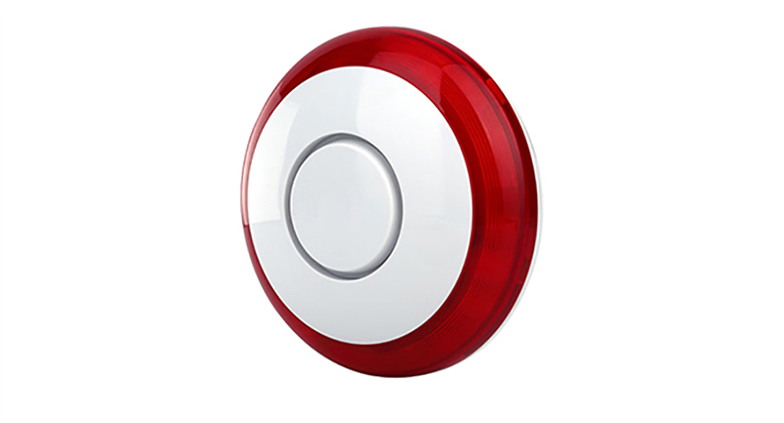Personal Smart Alarm: Your Guardian for Safer, Smarter Living
Enter the personal smart alarm — a modern security solution designed to protect your home, health, and peace of mind. Let’s dive into how this innovative technology works, why it’s essential for modern living, and how to choose the best one for your needs.
Why Traditional Alarms Are No Longer Enough
Traditional alarms — whether for smoke, intruders, or carbon monoxide — have long been staples of home safety. But let’s face it: they’re often limited. A shrill siren might alert you to danger, but it can’t tell you where the problem is, how severe it is, or even prevent it altogether. Worse, outdated systems lack connectivity, leaving you unaware of emergencies when you’re away from home.
Here’s the reality: safety threats are evolving, and so should your alarms. From silent break-ins to slow gas leaks, modern risks demand smarter, proactive solutions.
What Makes a Personal Smart Alarm “Smart”?
A personal smart alarm goes beyond loud noises and flashing lights. It integrates advanced technology to detect, analyze, and respond to threats in real time. Here’s what sets it apart:
- Real-Time Monitoring & Alerts
Smart alarms use sensors (motion, heat, smoke, gas) to detect hazards instantly. When triggered, they send alerts directly to your phone via Wi-Fi or Bluetooth, even if you’re miles from home. - AI-Powered Prevention
Some devices learn your routines. For example, a smart smoke alarm can distinguish between burnt toast and a real fire, reducing false alarms. Others, like water leak detectors, can shut off your home’s water supply automatically to prevent flooding. - Seamless Smart Home Integration
Pair your alarm with lights, cameras, or locks. If an intruder is detected, your system can flash lights, record video, and lock doors simultaneously to deter threats. - Customizable Safety Zones
Create “zones” for specific risks. Receive alerts if a window is left open overnight or if carbon monoxide levels rise in the basement.
Key Benefits of Upgrading to a Smart Alarm
Transitioning to a smart alarm isn’t just about avoiding ear-splitting sirens — it’s about building a safer, more responsive home. Here’s how it makes a difference:
- 24/7 Peace of Mind
Whether you’re at work or on vacation, real-time alerts keep you informed. Some systems even connect to professional monitoring services that dispatch help if you can’t respond. - Prevention Over Reaction
Smart alarms don’t just warn you — they act. For instance, a gas leak detector can automatically shut off valves, while a smart doorbell camera can scare off porch pirates with a loud alarm. - Data-Driven Insights
Review trends via companion apps. Spot recurring issues (e.g., humidity spikes in the bathroom) and address them before they escalate. - Family-Friendly Safety
Customize alerts for different users. Send smoke alarm notifications to everyone’s phones or set up child-safe zones with motion sensors.
How to Choose the Right Smart Alarm System
With countless options on the market, finding the perfect fit can feel overwhelming. Follow these steps to narrow your search:
- Assess Your Risks
Start by identifying your needs. Do you live in an area prone to break-ins? Worried about floods or gas leaks? Prioritize alarms that address your biggest concerns. - Opt for Expandability
Choose a system that grows with your needs. Brands like Ring, Nest, and Aqara offer modular setups where you can add sensors (e.g., window, door, air quality) over time. - Check Compatibility
Ensure the alarm works with your existing smart home ecosystem (e.g., Apple HomeKit, Google Home, Alexa). This avoids the hassle of juggling multiple apps. - Battery Life & Power Options
Look for devices with long-lasting batteries or backup power (e.g., solar panels) to stay functional during outages. - Read User Reviews
Focus on feedback about reliability, app usability, and customer support. Avoid systems plagued by false alarms or connectivity issues.
The Future of Smart Alarms: What’s Next?
As technology evolves, so will personal smart alarms. Expect advancements like:
- AI-Predictive Analytics: Systems that predict risks (e.g., electrical fires) by analyzing usage patterns.
- Voice-Activated Controls: “Hey Google, is the basement safe?”
- Community Networks: Alarms that alert neighbors or local authorities automatically during emergencies.
Final Thoughts: Safety Made Simple
A personal smart alarm isn’t just a gadget — it’s a proactive partner in safeguarding what matters most. By blending cutting-edge tech with user-friendly design, these systems turn fear into confidence and chaos into control.
Ready to take the next step? Explore top-rated smart alarms today, and build a home that’s not just secure, but truly intelligent.



